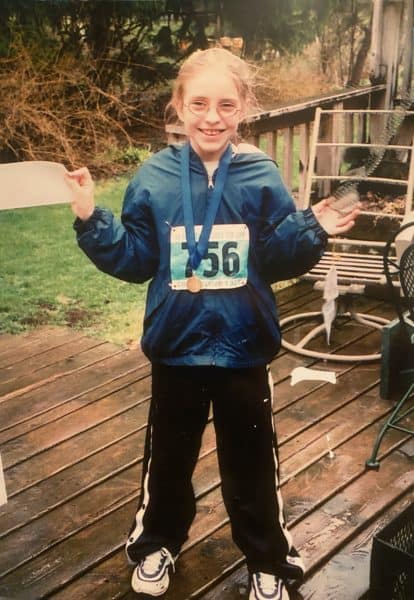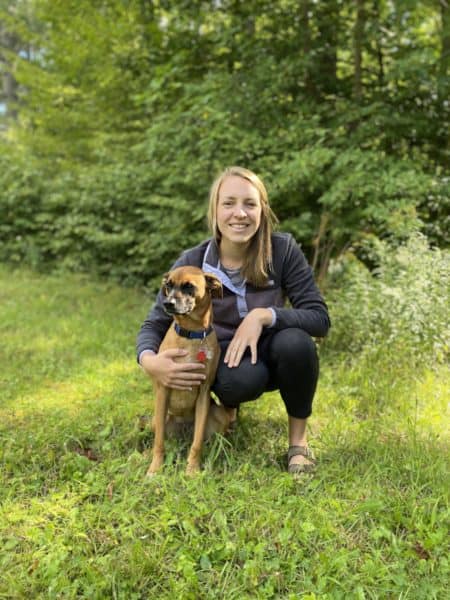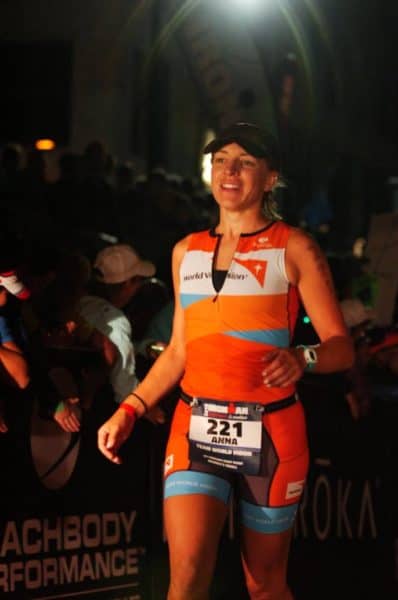Anna clearly remembers what it was like growing up with hearing loss and the impact her schoolteachers had on her hearing self-confidence and motivation to succeed. Now, as a School Coordinator in charge of student affairs and a successful triathlete, Anna is passionate about teaching a new generation of kids with hearing loss to pursue their dreams. Here are her top tips for building confidence in children living with cochlear implants.
Anna remembers growing up with hearing loss
As a bilateral cochlear implant recipient since age 2, Anna remembers what it was like growing up with hearing loss and the impact her schoolteachers had on her hearing self-confidence and motivation to succeed.
“Growing up, there were times that I did not understand what was said or struggled to hear in loud environments,” says Anna. “My deaf educators taught me to be assertive and tell my teachers and friends what I needed.”
Having been a Teacher of the Deaf for four years and now a School Coordinator in charge of student affairs, Anna is passionate about giving young people the same level of confidence that has allowed her to succeed in her personal and professional life.
“Today the biggest challenges that children with hearing loss struggle with are confidence, making friends and advocating for themselves,” she says of her experience working with children of all ages.
Anna lists five important tips for parents and teachers to give children with hearing loss every opportunity to achieve their best:
- Encourage your child’s dreams no matter what they are.
“My family is super supportive of me and has inspired me to get to where I am today,” says Anna who is also a successful athlete. “I have never let my hearing loss stop me from competing and my parents always encouraged my dreams and goals.”
- Show them how to advocate for themselves during sports, school and with friends.
“It can be hard to advocate for yourself and there is a level of learning and comfort with their hearing loss that children have to learn,” says Anna. “Being an advocate means understanding their hearing loss and being able to express what they need.”
- Give them confidence and assure them that everyone is different.
“These differences are what make us all unique. We should be proud of the things that make us unique and show others that being different is normal,” says Anna. “My family always encouraged me to embrace my deafness and cochlear implants instead of hiding from it.”
- Never say “never”.
“As well as triathlons, I have done several marathons and an Ironman. Taking on a challenge motivates and encourages you to do things that you wouldn’t have necessarily done before. Attempting something and failing is better than not trying at all.”
- Always smile!
“Things won’t be easy and may get challenging but having a good attitude can make a difference,” says Anna. “A smile is contagious and encourages others to take on challenges of their own.”
Leverage today’s technology
In today’s world where there are the added pressures of online learning and remote working, Anna is also appreciative of the technology that allows her to more clearly hear her students and colleagues. By streaming the audio to her CochlearTM Nucleus® 6 and 7 Sound Processors1, Anna has been able to use her iPhone®2, video chat and conferencing apps for school and social calls.
“The most challenging thing is filling in the blanks. If two people start to talk or the internet cuts out, it is sometimes hard to figure out what was said,” says Anna.
Having the right tools and hearing accessories can make school and socializing with friends online a lot easier for young people with hearing loss. For Anna, “the Nucleus 6, Nucleus 7 and Mini Microphone 2+ have been game changers when it comes to Zoom3 and FaceTime®4. I am able to stream right to my implant and the sound quality is excellent.”
Certainly, perseverance is something that Anna personally demonstrates in her own life. Encouraging children with hearing loss to push ahead despite the challenges is something that Anna has found to be key to success in life.
“There’s times that you don’t want to work at it anymore,” she says. “It’s not easy and there’s lots of challenges, but there’s nothing like crossing the finishing line.”
Read more stories about hearing loss in children.
- The Cochlear Nucleus 7 Sound Processor is compatible with Apple and Android devices. The Cochlear Nucleus Smart App is available on App Store and Google Play. For compatibility information visit www.cochlear.com/compatibility
- Apple, the Apple logo, FaceTime, and iPhone are trademarks of Apple Inc., registered in the U.S. and other countries. App Store is a service mark of Apple Inc., registered in the U.S. and other countries.
- Zoom is a trademark of Zoom Video Communications, Inc. and/or its affiliates.
- Apple, the Apple logo, FaceTime, and iPhone are trademarks of Apple Inc., registered in the U.S. and other countries. App Store is a service mark of Apple Inc., registered in the U.S. and other countries.


